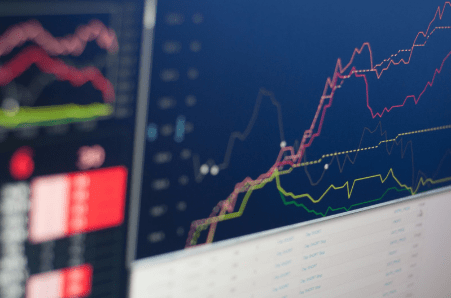Developing Forex Trading Strategies
Successful forex trading requires a well-thought-out strategy encompassing technical analysis, fundamental analysis, and risk management practices. These elements help traders make informed decisions and increase their chances of making profitable trades.

Technical Analysis Techniques
Technical analysis focuses on past price movements and trading volumes to predict future price behaviour. This method involves various tools and indicators to identify trading opportunities. Popular techniques include using moving averages, which help smooth out price data to create a trend-following indicator.
Another essential tool is the Relative Strength Index (RSI), which measures the speed and change of price movements. RSI values above 70 indicate overbought conditions, while values below 30 indicate oversold conditions.
Chart patterns like head and shoulders, double tops, and triangles provide visual cues about potential market shifts. Candlestick patterns such as Doji, Hammer, and Engulfing indicate market sentiment and potential reversals. By analyzing these patterns, traders can predict market trends and make strategic decisions.
Technical analysis also involves using trendlines, support, and resistance levels to identify market direction and potential entry and exit points. Applying these techniques allows traders to understand market dynamics and execute trades with greater confidence.
Fundamental Analysis
Fundamental analysis evaluates economic, political, and social factors to determine a currency’s value. This approach examines key economic indicators like Gross Domestic Product (GDP), inflation rates, and employment data. For example, more robust GDP growth generally leads to a stronger currency.
Central bank policies play a crucial role in forex markets. Decisions on interest rates and monetary policies can significantly impact currency values. Traders must monitor central bank meetings and statements to anticipate market moves.
Political stability and geopolitical events also influence currency values. Elections, government policies, and international conflicts can create market volatility. Understanding these factors helps traders gauge market sentiment and predict currency movements.
Trade balances and foreign investment levels are other important components. A country with a positive trade balance and high levels of foreign investment typically has a stronger currency. By analyzing these aspects, traders can make well-informed decisions about currency pairs.
Risk Management Practices
Effective risk management is crucial in forex trading to protect capital and minimize losses. One key practice is setting stop-loss orders, automatically closing a trade at a predetermined loss level. This prevents substantial losses if the market moves against the trader’s position.
Position sizing is another vital aspect. Traders should only risk a small percentage of their capital on a single trade, typically no more than 1-2%. This strategy helps ensure that no single trade significantly impacts their overall capital.
Leverage management is also essential. While leverage can amplify gains, it can equally magnify losses. Traders must use leverage cautiously and understand its potential risks. Using lower leverage ratios reduces the risk of significant losses.
Diversification helps mitigate risks by spreading investments across different currency pairs and trading strategies. This approach reduces the impact of adverse movements in a single currency pair.
Additionally, traders can benefit from alt signals forex trading signal channels, which provide real-time trading signals and market analysis. These channels offer valuable insights and help traders make timely and informed decisions.
By incorporating these risk management practices, traders can enhance their trading strategies and better navigate the forex market.
Building Your Trading Career
Establishing a successful career in forex trading involves careful planning, mental discipline, and a commitment to continuous education. Here are the essential steps to build your trading career effectively.
Creating a Trading Plan
A trading plan is vital for anyone serious about forex trading. This plan is a roadmap outlining trading goals, risk tolerance, and strategies to guide decision-making. Specify clear objectives, such as targeting a particular return on investment or maintaining a specific win-loss ratio.
Define your risk tolerance by setting maximum acceptable losses and identifying stop-loss thresholds. This will help manage the emotional and financial stress of trading. Choose concise strategies, whether day trading or swing trading, and stick to them to avoid impulsive decisions.
Include capital management rules in your plan. Determine the amount of capital you’re willing to risk on each trade, typically a small percentage of your total capital. A disciplined approach to money management is essential to achieve long-term success.
Psychology of Trading
Emotions can significantly impact trading performance. Traders must cultivate a mindset that separates emotions from decision-making. Euphoria from winning trades or despair from losses can lead to grave errors. Maintaining emotional balance is key.
Practicing patience and discipline is crucial. Traders must resist the urge to over-trade and should wait for high-probability setups. This patience can prevent costly mistakes driven by impulsive actions.
Stress management techniques, such as mindfulness or regular breaks, can help maintain mental clarity. A structured routine supports emotional stability and helps traders remain focused. Incorporating strategies like these can greatly enhance trading performance.
Continuous Learning and Improvement
The forex market is ever-changing, and continuous learning is required. Young traders should engage with educational resources regularly. Consider enrolling in structured forex trading courses tailored to different expertise levels.
Joining communities and attending webinars can provide fresh insights and strategies. Networking with experienced traders can offer real-world tips that go beyond textbooks. These connections can be invaluable for growth.
Another cornerstone of improvement is regularly reviewing and analyzing past trades. This self-reflection helps identify strengths and weaknesses, and adjusting strategies based on these insights ensures consistent growth.
Incorporating these practices can significantly enhance one’s ability to adapt and thrive in the dynamic forex environment.






